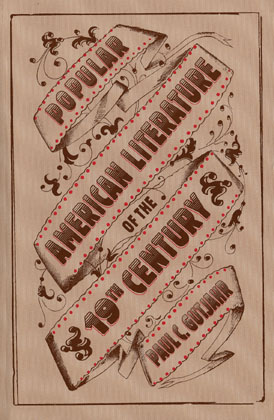One of the wonders of printed material is its persuasive power. It can threaten, promise, cajole, and insinuate ideas of lasting influence. Such influence manifests itself in a number of ways, but perhaps one of the most obvious is found in the development of national mythologies. For example, consider the story of George Washington cutting down a cherry tree, a deed he then nobly confesses with the now immortal words “I can’t tell a lie.” It is a story that has become synonymous with George Washington, yet it was a fable created by Parson Weems in his tremendously popular biography of the first president.
American Popular Literature of the Nineteenth Century
American Popular Literature of the Nineteenth Century
- Paul Gutjahr
- Publication Date
2001 - Website
- View more information
 The College of Arts
The College of Arts